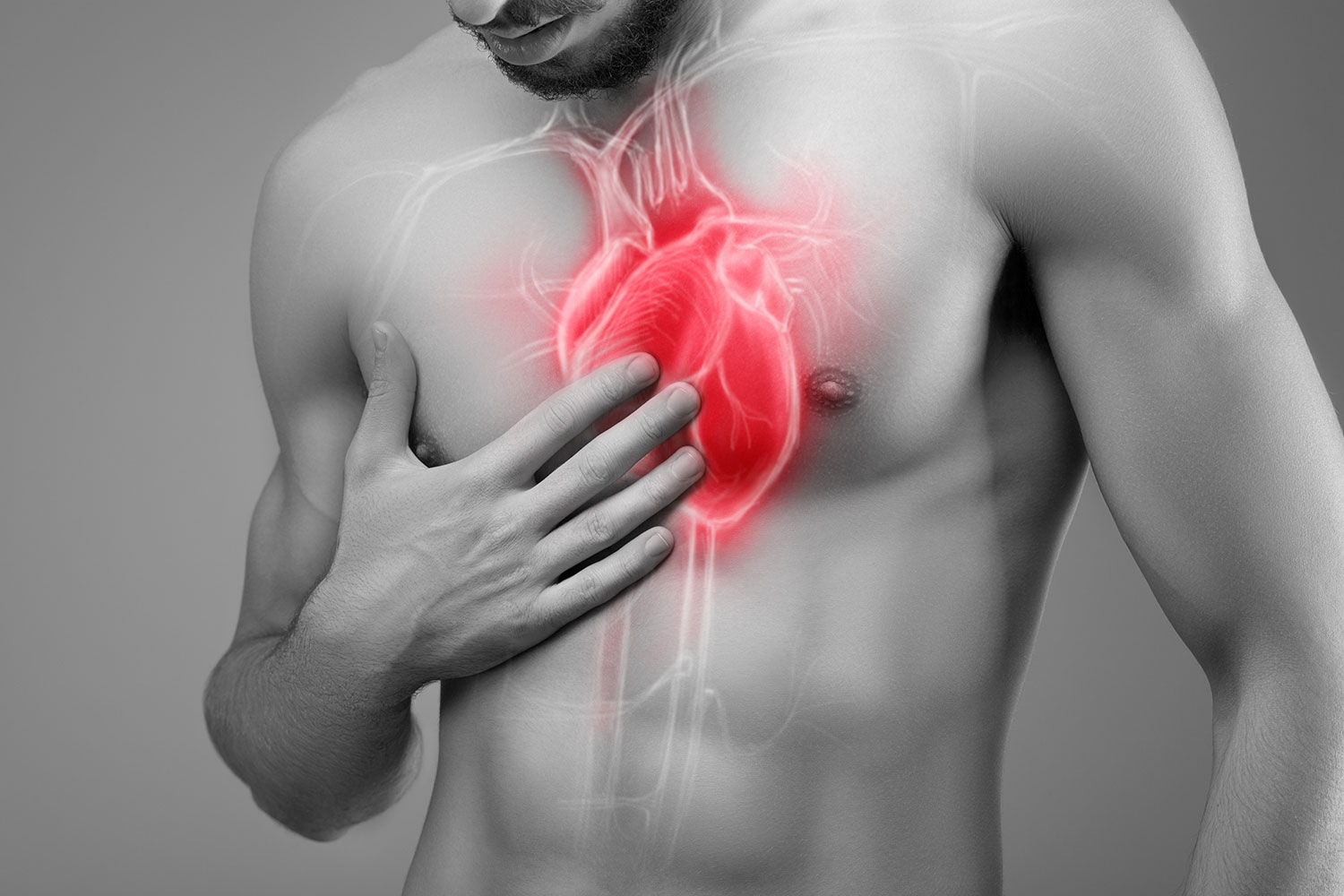How Dr Garcia helps track and improve key cardiovascular metrics
Comprehending the Value of Cardiology in Modern Medical Care Providers
Cardiology plays a critical duty in modern healthcare, especially as heart illness proceeds to be the leading root cause of death worldwide. Developments in diagnostics and therapy have actually transformed patient care, making it possible for earlier interventions and improved outcomes. Additionally, the shift towards preventative cardiology encourages people to handle their health and wellness proactively. As innovation continues to evolve, the integration of cutting-edge remedies might even more redefine cardiology's impact on public health, motivating a more detailed assessment of emerging trends and their effects.
The Occurrence of Cardiovascular Disease and Its Influence On Public Health And Wellness
Heart disease continues to be the leading cause of death internationally, its effect expands far past private patients to affect public health and wellness systems and economies. The high frequency of heart illness places a considerable strain on medical care resources, demanding enhanced financing for rehabilitation, prevention, and therapy programs. Public wellness campaigns should resolve risk aspects such as weight problems, smoking cigarettes, and less active way of lives, which add greatly to the rising occurrence of heart conditions.Moreover, the economic burden linked with heart problem is enormous, incorporating not just direct medical prices yet also indirect costs connected to shed productivity and premature death. Areas face challenges in handling these expenses, usually resulting in variations in health care accessibility and end results. As the populace ages and lifestyle-related risks continue to escalate, the urgency for efficient cardiology interventions ends up being vital. Dealing with heart disease is not only a matter of specific wellness yet additionally an important public wellness concern.
Advancements in Cardiac Diagnostics and Imaging Techniques
Recent advancements in heart diagnostics and imaging strategies have actually reinvented the field of cardiology, enhancing the capacity to check and find heart problem. Methods such as cardiac MRI, CT angiography, and echocardiography have actually ended up being progressively sophisticated, giving in-depth pictures of cardiac frameworks and functions. These modalities permit for the early identification of problems like coronary artery illness, heart failure, and valvular disorders.Moreover, innovations in non-invasive diagnostics, such as wearable innovation and remote monitoring tools, have encouraged individuals and healthcare providers. These devices help with real-time monitoring of heart rhythms and other crucial indications, leading to prompt interventions. Furthermore, expert system is being integrated right into imaging analysis, enhancing precision and effectiveness in medical diagnosis.
Developments in Therapy Options for Heart Issues
Recent improvements in cardiology have actually resulted in substantial developments in therapy alternatives for heart conditions. These consist of advanced surgical strategies that enhance procedural end results and emerging medicines that use new opportunities for treatment. As the area develops, these innovations play an important duty in boosting individual treatment and outcomes.
Advanced Surgical Techniques
Advancements in medical techniques have changed the landscape of cardiology, supplying new hope for individuals with heart disease. Minimally intrusive procedures, such as catheter-based interventions, have considerably lowered recuperation times and medical facility remains. Methods like robotic-assisted surgical procedure boost accuracy, allowing surgeons to navigate complex anatomical structures with higher accuracy. Innovations in imaging modern technology promote real-time visualization throughout treatments, enhancing outcomes. Transcatheter aortic valve substitute (TAVR) exhibits a breakthrough in dealing with aortic constriction, making it possible for shutoff replacement without open-heart surgical treatment. Additionally, hybrid approaches that combine catheter-based and medical techniques supply tailored solutions for various heart problems. These sophisticated surgical techniques not just improve client safety yet additionally broaden treatment alternatives, emphasizing the important function of innovation in modern-day cardiology methods.
Emerging Medications and Treatments
As the landscape of cardiology remains to develop, arising medicines and therapies play a pivotal duty in enhancing therapy choices for heart disease. Technologies such as novel anticoagulants and progressed lipid-lowering agents have actually transformed the monitoring of heart diseases, considerably decreasing person morbidity and mortality. In addition, the advancement of genetics therapies and regenerative medication offers encouraging avenues for dealing with conditions previously regarded irreversible. Professional trials are consistently revealing the effectiveness of these therapies, pushing the borders of standard treatments. The integration of digital health and wellness modern technologies helps with individualized medication, allowing for tailored treatment plans based on hereditary and way of living factors. Collectively, these improvements emphasize the vibrant nature of cardiology, improving client results and redefining requirements of treatment in modern-day medical care.
The Role of Preventive Cardiology in Client Care
Precautionary cardiology plays a necessary duty in person treatment by focusing on the recognition of danger variables that add to cardiovascular disease. Through lifestyle modification strategies and early detection techniques, healthcare service providers can efficiently decrease the incidence of cardiovascular events - Cardiology Jupiter. This positive method not only improves person end results yet likewise promotes long-term health
Threat Variable Recognition
While heart diseases remain a leading reason of morbidity and death worldwide, efficient risk variable recognition acts as a cornerstone of preventive cardiology. Recognizing danger elements such as hypertension, hyperlipidemia, household, and diabetes history is essential for very early intervention. Medical care experts utilize numerous screening approaches to assess these factors, enabling for tailored safety nets. In addition, comprehending a patient's way of life choices, such as cigarette smoking and physical lack of exercise, additionally informs danger analyses. This extensive evaluation allows medical professionals to develop tailored care plans focused on mitigating dangers. By prioritizing danger variable recognition, healthcare systems can improve patient end results and minimize the general worry of cardiovascular diseases, inevitably adding to boosted public wellness strategies and resource allocation.
Lifestyle Adjustment Approaches
A multitude of researches highlights the crucial role of way of life alteration strategies in decreasing cardiovascular illness threat. These strategies encompass dietary modifications, boosted physical task, smoking cigarettes cessation, and weight management. By adopting a heart-healthy diet rich in fruits, vegetables, whole grains, and lean proteins, individuals can lower cholesterol levels and blood pressure. Routine exercise enhances the heart and enhances general cardiovascular health and wellness. Furthermore, stopping cigarette smoking considerably minimizes the danger of heart illness and improves healing rates for those with existing conditions. Weight monitoring better adds to cardio health and wellness by alleviating other risk factors such as diabetes and high blood pressure. Applying Discover More Here these way of life alters not only advertises specific wellness but also offers as a foundation of precautionary cardiology in client treatment.
Very Early Detection Techniques
Way of living adjustments significantly add to lowering cardiovascular disease threats, however they are most effective when coupled with very early detection strategies. Precautionary cardiology emphasizes the value of determining potential heart concerns before they rise into serious problems. Techniques such as high blood pressure monitoring, cholesterol testing, and advanced imaging technologies like echocardiograms play crucial duties in assessing cardio health. Biomarkers and hereditary testing likewise enhance the precision of very early detection, enabling tailored preventive methods. Regular heart threat analyses empower doctor to interfere proactively, potentially stopping cardiac arrest and strokes (Cardiologist near me). By integrating these early discovery methods into regular treatment, clients can take advantage of prompt lifestyle interventions and targeted therapies, ultimately enhancing and enhancing results top quality of life
Integrating Technology Into Cardiology Practices
As improvements in modern technology remain to reshape various fields, the combination of cutting-edge devices and systems right into cardiology practices has ended up being necessary for boosting patient care and outcomes. Telemedicine platforms permit cardiologists to keep track of individuals from another location, boosting accessibility to care while look here lowering the worry on healthcare facilities. Wearable devices, such as smartwatches, enable continuous heart rate monitoring, alerting both physicians and patients to potential issues in real-time. Additionally, artificial intelligence (AI) is being made use of to assess substantial quantities of heart information, helping in early diagnosis and personalized treatment strategies. Advanced imaging strategies, consisting of 3D echocardiography, improve visualization of heart structures, leading to extra specific treatments. Electronic health documents (EHRs) enhance individual information management, making certain that cardiologists have prompt access to essential data. With each other, these technological advancements are changing cardiology, promoting proactive monitoring and enhanced health end results for individuals with cardiovascular problems.
The Importance of Individual Education and Interaction
Patient education and involvement play a critical duty in the administration of cardio health. By furnishing patients with understanding concerning their conditions, treatment alternatives, and lifestyle modifications, doctor encourage individuals to take an active function in their treatment. This proactive method can bring about improved adherence to suggested medications, nutritional adjustments, and exercise programs, inevitably decreasing the danger of complications.Engagement additionally fosters a strong patient-provider connection, motivating open interaction and trust. When clients feel notified and entailed, they are extra likely to voice concerns and ask concerns, which can cause far better professional end results. Additionally, academic resources, such as workshops or digital platforms, can improve understanding and advertise self-management methods. On the whole, focusing on person education and learning and involvement is essential for enhancing cardiovascular health, improving quality of life, and reducing healthcare costs related to cardio conditions.
Future Fads in Cardiology and Their Possible Effect

Often Asked Questions
What Lifestyle Adjustments Can Lower Heart Illness Danger?
The current inquiry addresses way of living modifications that can significantly reduce heart problem danger. Cardiology care. Adopting a well balanced diet plan, engaging in normal physical task, keeping a healthy and balanced weight, managing anxiety, and preventing tobacco can especially enhance cardio health and wellness
How Can I Identify Early Signs of Heart Issues?
Recognizing very early signs of heart troubles involves surveillance signs such as upper body pain, lack of breath, exhaustion, and irregular heart beat. Prompt understanding of these indications can trigger essential medical analysis and intervention for far better outcomes.
What Are the Distinctions In Between Cardiologists and Cardiac Surgeons?
The distinctions in between cardiologists and cardiac doctors lie in their functions; cardiologists primarily identify and take care of heart problems through non-invasive techniques, while heart cosmetic surgeons do operations to remedy architectural heart issues. Each plays an important, distinctive role.

Just how Commonly Should I Obtain My Heart Health And Wellness Checked?
The frequency of heart this hyperlink health checks differs based on individual threat aspects. Normally, adults need to go through assessments every one to 2 years, while those with status quo might need more constant evaluations as recommended by medical care experts.
What Role Does Genes Play in Heart Illness Risk?
Genes significantly affects heart illness risk, with domestic patterns indicating acquired conditions. Certain genes can incline individuals to high blood pressure, cholesterol issues, and various other cardiovascular troubles, highlighting the significance of hereditary screening in examining heart health. Heart condition remains the leading reason of fatality internationally, its impact prolongs much beyond private patients to impact public wellness systems and economic climates. Public wellness initiatives need to address danger variables such as obesity, smoking cigarettes, and sedentary way of lives, which add greatly to the increasing occurrence of heart conditions.Moreover, the financial burden connected with heart condition is tremendous, encompassing not only straight clinical costs but likewise indirect expenditures connected to lost efficiency and premature death. Preventative cardiology plays an important function in individual treatment by concentrating on the identification of risk elements that contribute to heart illness. Fabricated knowledge (AI) and machine knowing are improving diagnostics and individual tracking, making it possible for very early discovery of heart conditions. The distinctions in between cardiologists and heart doctors exist in their duties; cardiologists primarily diagnose and manage heart conditions through non-invasive methods, while heart surgeons perform medical treatments to deal with structural heart problems.